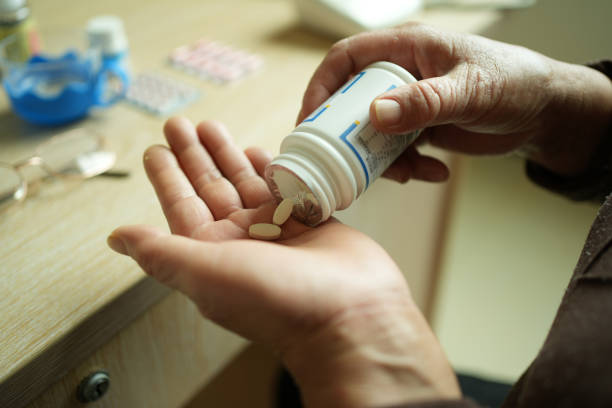
There are several supplements that can aid in lowering blood pressure naturally. However, it is important to talk with your physician before you begin taking these supplements.
Many of these supplements utilize powerful phytonutrientsthat are potent, such as Hawthorne and berry extracts. The extracts are known to promote antioxidant activity that protect the heart from oxidation by free radicals.
1. Magnesium
Making sure you have enough magnesium is among the most essential actions you can take to keep your blood pressure at a manageable level. Magnesium is present in many different foods like whole grains as well as dark green leafy veggies and nuts, as well as beans and beans.
The average American takes in less magnesium than what is recommended by these sources.
Many people are at risk of being diagnosed with high blood pressure. This is a leading risk factor that can be modified to increase the risk of heart disease and premature death, therefore it is essential to maintain it under control.
Research suggests that magnesium supplements might help with this by lower blood pressure (BP). A recent meta-analysis of 34 clinical studies showed that a daily dose of 240mg of magnesium reduced blood pressures by 4.3 millimeters per hour and 2.3 respectively.
2. Vitamin D
Vitamin D offers a range of health benefits, including lowering blood pressure. Vitamin D is present in a variety of foods, but it is best if you get enough sun exposure.
Increasing amounts of 25-hydroxyvitamin D (25OHD) in the blood have been associated with decreased risk of hypertension and other cardiovascular diseases. It may also lower the chance of developing cancer and other chronic diseases.
A dose-response relation between 25-hydroxyvitamin D levels in the blood and the risk of hypertension was L-shaped. However, the aggregated results of controlled studies randomized to control (RCTs) did not show a significant reduction in blood pressure systolic as well as diastolic after vitamin D intervention.
There is still a lot to be discovered about the effects of vitamin D on blood pressure, this study suggests that supplementing with vitamin D regularly can lower blood pressure. This is a simple and effective way to avoid complications from uncontrolled high blood pressure.
3. Garlic
Garlic (Allium Sativum) is an onion-like plant. It's been utilized for centuries to treat and prevent diseases. Garlic's flavor and smell are due to a variety sulfur compounds, making it an effective natural detoxifier.
A meta-analysis of 12 studies found that garlic supplements may lower hypertension systolic (and diastolic) blood pressure by 8-10 mmHg. This is similar to standard blood pressure medication, and is associated with reductions of 16-40% in the chance of cardiovascular events such as stroke and heart attack.
This could be due an increase in the narrowing of blood vessels or vasoconstriction. Researchers also discovered that garlic powder helped to slow the effects of aging on arterial stiffening, which is one of the primary factors that contribute to high blood pressure.
Garlic has been associated with various additional health benefits, including a boost to immunity and lowering cholesterol levels. https://www.bioyouthlabs.com/products/blood-pressure-supplement on adults revealed that 900 mg of garlic extract taken daily for 12 weeks cut down LDL cholesterol by 11 percent and total cholesterol by 6.6%.
4. Green Tea
Camellia sinensis is a plant used in the production of green tea. It is a potent herbal remedy that are beneficial to many parts of your body, including your blood pressure.
Green tea, in particular, contains a catechin called epigallocatechin gallate (EGCG), which has been found to help reduce inflammation and decrease blood pressure. In addition, EGCG is known to protect cells from damage caused by free radicals.
Several studies have shown that green tea can improve blood pressure control in people with high blood pressure. It could also help lower LDL cholesterol levels as well as triglycerides.
A meta-analysis of the results of 24 trials found that green tea decreased systolic blood pressure (SBP) and diastolic blood pressure (DBP). To determine the optimal dosage to reduce BP, longer-term and larger studies are needed.
Green tea may also aid in weight loss and reduce insulin resistance in your cells, and reduce the risk of certain types of cancer. It can also improve your mood and improve oral health.
